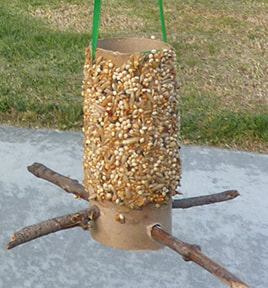 I often a lot of questions about limit-setting for children. I hope no one takes offense, but I often compare raising children to raising puppies. In the wild, puppies grow up in a pack. They look to the leader for guidance. In a family, it's important that parents be the leaders of the pack. The most effective way to get our puppy to listen is to speak in a lower register with a tone of authority. We need that same authoritative tone when speaking to our children about limits. If you speak with your voice raising its tone at the end of your sentence, you're asking a question. You're not speaking with an expectation of being listened to. There's no need to yell. It's mostly about the attitude you portray. Limit-setting is not mean, it's a loving thing to do and probably the most important job of parenting. I once had a visitor at my house with three small boys. They were wreaking havoc in my home, playing chase games on the stairs and knocking things over. I watched patiently as their mom tried cajoling them into behaving. She was so sweet, I thought it would give me a toothache. Finally, I stepped in and said, in a firm decisive but not loud voice, "Stop!" They stopped in their tracks. I sat them all down and told them that if they did not stop running in the house, they would have to sit. I gave them multiple choices of fun things to do that included running outdoors in the fenced in yard and insisted that they choose something, which they did. I was not sweet but was not mean. They could tell that I meant business. The rest of the visit went well. Their mom was amazed. These boys never listened to her. I'm not saying that it's always that simple. It's hard work for us to remain consistent but kind. I didn't always know this, and I have not always been successful. When my oldest son was around 6 or 7 years old, he was having night terrors every night. His dad and I tried everything we could think of to help him. Nothing was working. He went to an alternative school that was hosting a parent night once a month with a speaker on some aspect of child development or child-rearing. One month, there was a prominent local child psychologist. After he spoke, he opened up the floor for questions. I asked what we could do to prevent my son's nightmares. He explained that children often have nightmares because they feel unsafe. He asked how we handled limits. We had to admit that, coming from hellish childhoods ourselves, we were inconsistent and very lenient. He explained that children need to count on their parents to teach them how to stay safe through firm and consistent limit setting. He advised us to sit down together and come up with our "rules." Each one had to have a consequence for not following them, and we both had to be on board with them. It wasn't easy, but it worked. Once we did that, his nightmares went away. It was like magic. So what kind of consequences? It doesn't work to say, "Stop doing that or you'll be in trouble." What does that mean? What kind of trouble? You need to come up with a specific consequence that matches the infraction. For instance, if you throw your toy again, I will take it away. Or, if you don't put your pajamas on now, you will not get to play before bed. Or, if you keep taking toys away from your visiting friend, you will be in time out. Time outs need to be reasonable. A minute is a long time for a child, especially if there are other friends around. And, time outs are sitting in a chair doing nothing. They don't get to read or draw. Will your child be upset about it and try to talk you out of it? Probably, but in the long run, it will be helping them learn to be a responsible person. Once they learn that you will continue to set and enforce these limits, they will stop testing you as much. Kids are smart and learn very fast. Sometimes it's difficult to know what kind of limits to set and how to set them. It's important that our limits be reasonable and explainable. It's not always necessary to state the reason, but it's often helpful to say, "No hitting because hitting hurts. Why don't you try using your words instead?" Empathy is important. For example, "I know you're angry right now, let's try to solve this without hurting someone." If you repeat yourself, you are teaching your child to ignore you. Whatever you decide, it has to be the same every time, and there are no second chances. State what you need and what the consequence will be, then stick to it the first time. Make sure you are close to your child, even touching them gently and lovingly. There needs to be a personal and compassionate contact. Remember that you are on their side, you just need a behavior to change. My basic rule has been respect. Children need to learn to respect others personal space and individuality, including their parents'. I never insisted on my kids calling adults "Miss" or "Mister," but that is important to some of you, and I respect that. I have always insisted that they learn to not interrupt while trying to remain aware of their struggle. I know that children tend to get distracted and forget easily. When a child is interrupting, I always try to say to them, "I would really like to hear what you have to say. Can you wait just a moment?" That also sends a signal to the other person in the conversation that we need to make space for the child. I've also insisted that children respect my body. When I nursed my toddlers, I didn't let them be in complete control. I nursed on demand, but as they got older they became more demanding. I loved nursing them, but there were times when it wasn't convenient for me. Maybe I was cooking dinner or doing something with an older child, and they quickly learned to wait. I tried to remember the advice given to me by my first lactation consultant that I teach my child to stop crying before allowing them to latch on. It's better for their digestion, my sanity, and all three of them learned it in the first few days. Another important thing I taught my children and grandchildren is respect for my belongings, the furniture, my instruments, my phone, my pocketbook, etc. They are not allowed to jump on or off of the furniture. They are not allowed to get into my things or touch my instruments without asking first, and sometimes the answer is no. I usually give them another option, but sometimes it's just no, and that's okay. We all have to take no for an answer sometimes. As adults we don't get our own way because we throw a fit. If we did, the world would be crazier than it already is. It's important to remember that our main job as parents is to teach our children how to navigate the world successfully and responsibly. We are not doing them any favors by letting them run the show. Each of you will have your own rules, and they may be completely different from mine. After all, that's what makes the world go around. Here are a few great websites that address this issue. http://www.ahaparenting.com/blog/ https://www.huffingtonpost.com/sarah-maclaughlin-lsw/how-to-set-limits-for-kids https://centerforparentingeducation.org/library-of-articles/ Now that the weather is getting colder, we've been feeding the birds. You can have a lot of fun this month finding some pine cones out in the woods or in your yard. Tie a string around the top and make a loop for hanging. Then fill the spaces with peanut butter and roll them in birdseed. Hang them where you and your child can watch the birds enjoy this tasty treat. They will love the seed, and the peanut butter will give them essential fat they need to survive the winter. If you don't have pine cones, you can make another fun feeder using a toilet paper roll and sticks. I have always loved this song. Although limit setting may be the most important job you'll do, don't forget to have fun. Our children grow up so fast, and we don't want to look back at their childhoods and wish that we'd done more fun things with them. Enjoy them while they're young. The rest can wait.
0 Comments
Your comment will be posted after it is approved.
Leave a Reply. |
Archives
April 2019
Categories |


 RSS Feed
RSS Feed